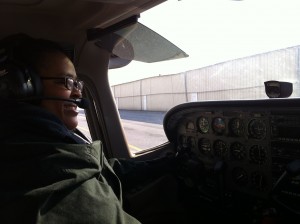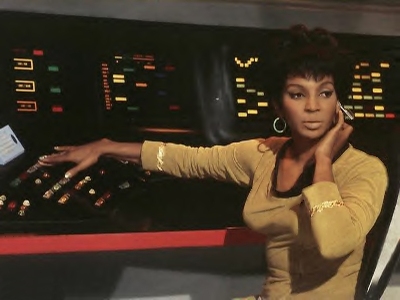 Current Location: Frederick, MD USA
Current Location: Frederick, MD USA
Current Gig: Freelance aviation/travel journalist and blogger; spokeswoman for non-profit aviation association (Aircraft Owners and Pilots Association)
Member Since: March 2010
Six-word memoir: Keep diversity in journalism despite odds
Favorite fictional character: Uhura from “Star Trek.” (In describing her character to the suits at NBC, creator Gene Roddenberry said, “I wanted to put a little color on the bridge.”
Favorite tech tool: My iPhone 4 (you’ll have to pull it from my cold, dead hand)
What happens during your average day?
I don’t have average days. But in general, crack of dawn (4:30) and late evenings (past midnight) are set aside for the blog and freelance business. Days are handling media calls, speaking to reporters on AOPA issues, overseeing AOPA’s social media accounts and learning to fly.
Why did you choose to get involved with online media?
My previous company (Aviation Week) back in 2006 told us the future was online, and that we needed to get with it. I’m an old-school print journalist (my first job had me on an electric typewriter) that transformed. Online media and all the associated tools and tech made me excited about my career again!
As the “Aviation Queen” how did you manage to blend your love of the skies with journalism?
I cannot believe that I’ve been paid for my hobby these past 20 years. I’ve been an avgeek since my first plane ride at the age of 6, and in 1992, I was finally able to parlay that into a writing/communications career. A small note: I didn’t come up with the name Aviation Queen – it was given to me by my industry.
You also work as the chair of NABJ’s Digital Task Force – what challenges do you see journalists facing as they enter or transition their careers? What are the most common pitfalls, and how can they avoid them?
Amazingly enough, I see a lot of journalists who are still reluctant to make the transition. They insist on clinging to the old ways under a business model that continues to crumble and layoffs continue to happen. DJTF has worked hard to help NABJ members and others to embrace the change by showing them where the training is and how to use the latest tools and technology. Most importantly, we want to show people they don’t have to be scared of these changes, but they’re going to have to do them if they want to continue their journalism careers.
One big pitfall I see is people getting too overwhelmed trying to do too much, and not understanding the true reach of social media. Folks need to take advantage of the training available out there. There’s plenty of free and low-cost options, but to be really effective, you’re going to have to invest in yourself.
The Roland Martin-Twitter controversy continues to make waves, particularly as journalists try to figure out what is appropriate online. You already gave your advice to journalists – but how would you advise CNN to update their social media policy, to help eliminate some of the confusion?
When I was at Aviation Week, I was one of four charter members that helped create parent company McGraw Hill’s social media policy. We had members from across all the company units, and we shared best practices and crafted a policy that worked for everyone and made sense. At this day and age, media outlets should have a policy in place, but most of it, really, is just common sense.
Recently, you were laid off from a long-time position, but managed to prosper. What tips do you have for journalists who may be facing a pink slip?
Tip one: keep your resume updated, even if you’re happy in your current job.
Tip two: keep a copy of it in the cloud; the day I was laid off, I was able to send my resume to four people on my train ride home. Tip three: always nurture your network. Thanks to my 20+ year network, I haven’t actually applied for a job since 1992. And my network didn’t fail me this time, because I was laid off on Oct. 4; by the end of the month, I had three great job offers.
Tip four: DO NOT WALLOW over the loss. That’s time you could be spending emailing/calling your network, looking for job tips and seeing what opportunities are out there. I created a nice freelance business because after it got out I had been laid off, folks who have known me for years came out of the woodwork to offer me assignments.
If you had a million dollars dedicated to improving media, you would…
Create a fund that would offer solid multimedia training via associations and organizations like ONA or Poynter for mid- to late-career journalists of color.

